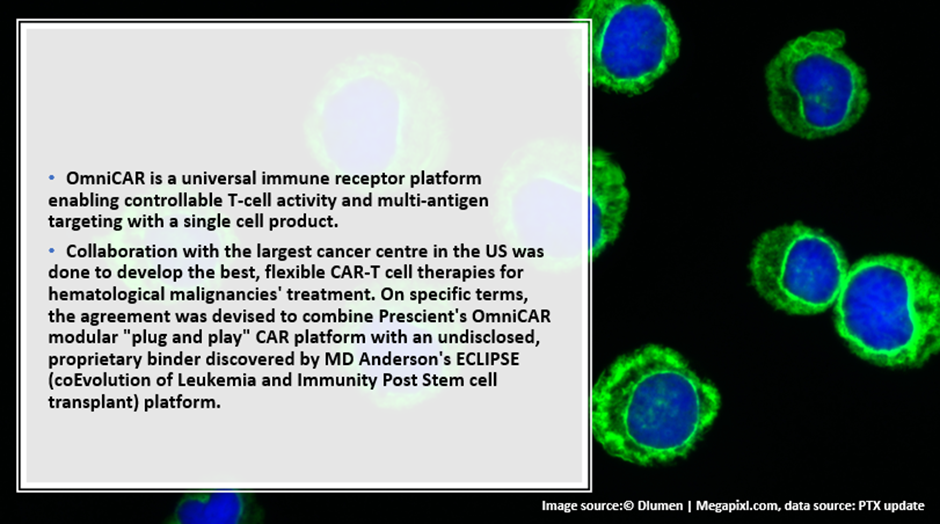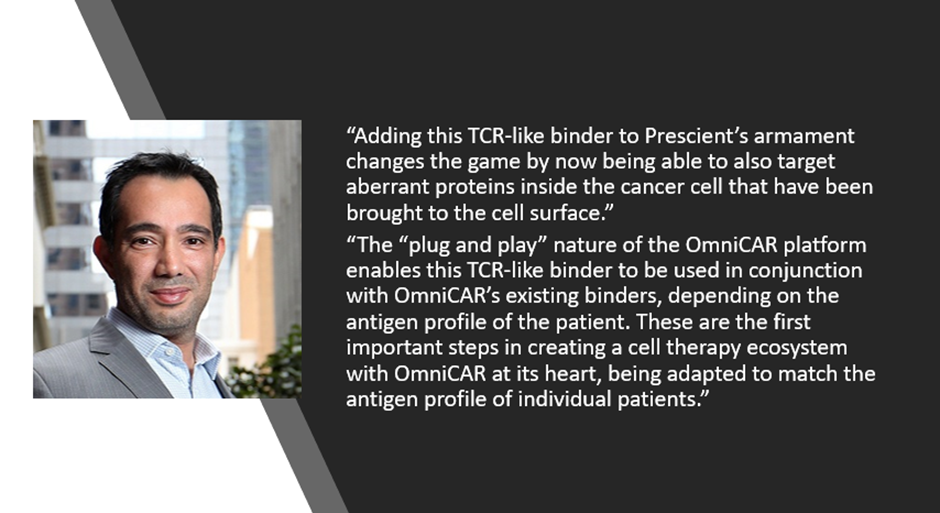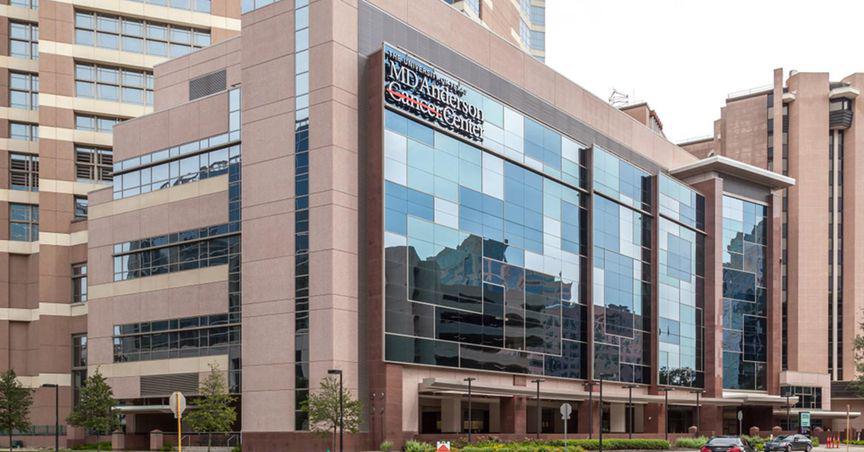Highlights
- Prescient has entered into a strategic collaboration with MD Anderson, the biggest cancer centre in the US.
- The collaboration, aimed at developing flexible CAR-T cell therapies, will combine Prescient's OmniCAR platform with an undisclosed, proprietary binder discovered by MD Anderson’s ECLIPSE.
- This move places OmniCAR at the forefront of cellular immunotherapy, as it can target both inside and outside proteins of cancer cells.
Prescient Therapeutics (ASX:PTX) takes a crucial step in advancing its next-generation cell therapy platform, OmniCAR. The clinical-stage oncology player entered into a strategic agreement with The University of Texas MD Anderson Cancer Center (MD Anderson), the largest cancer centre in the US.

© 2022 Kalkine Media®
TCR-like binders
ECLIPSE has created a comprehensive sample library, enabling research to reveal novel binders that may allow targeting blood cancer cells in a way that is distinct to CAR-T therapies. These binders are T cell receptor (TCR)-like antibodies that find cancer cells in a similar immune matching mechanism as during organ donor matching for transplantation.
The important benefits of TCR-like binders are:
- They are capable of targeting proteins found inside a tumour cell, that have been brought to the cell surface for recognition. As these internal proteins are distinct from tumour surface antigens, it opens a new range of alternatives for cellular therapy targets.
- TCR binders can be highly specific – over 1,000 times more sensitive than CARs
- TCR binders have a safe profile as they are highly specific, and cross-reactivity to healthy tissues is not anticipated.
- TCR-like binders could also lead to synergies when used in multi-arming OmniCAR-T cells alongside PTX binders. It can enhance efficacy and a broader spectrum of cancer-killing against antigens linked with tumours.
Resultantly, incorporating TCR binders into the OmniCAR armoury helps consolidate OmniCAR at the forefront of cellular immunotherapy innovation.
Initially, the collaboration will concentrate on a binder to an undisclosed target present in leukemic blasts and leukaemic stem cells, whose expression co-relates deeply with poor outcomes. Interestingly, this binder does not identify healthy bone marrow, thus possibly providing a distinctive combination of efficiency and safety.
Prescient and MD Anderson will equally bear the cost of the research, and both parties will have commensurate ownership of the resultant therapeutic product.
According to Dr Rebecca Lim, Prescient's Senior Vice President of Scientific Affairs, identifying and binding targets on the surface of tumour cells are major challenges in developing effective cancer therapies. In this regard, the ECLIPSE platform has provided important innovations in identifying and creating unique binders for these novel targets. It also overcomes the heterogeneity of antigen expression, enabling multiple targets to be addressed over time if the patient relapses.
Comments by Prescient’s Managing Director and CEO, Steven Yatomi-Clarke

Image source: © 2022 Kalkine Media®, data source: PTX update
As of 08 Sep, 1:15PM AEST, the share price of PTX was AU$0.195, up 2.63%.
To know more about Prescient Therapeutics Limited, click here. Also, to stay updated with PTX company activities and announcements, please update your details on their investor centre.




